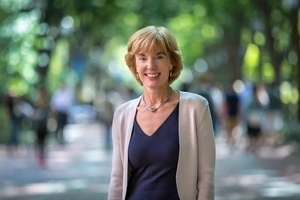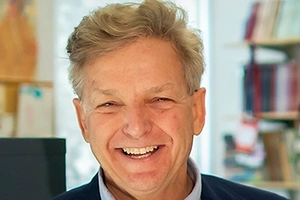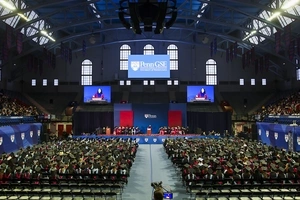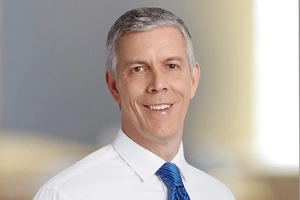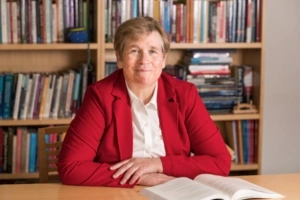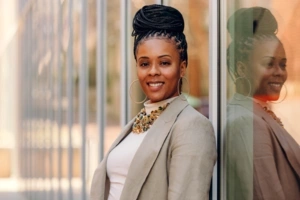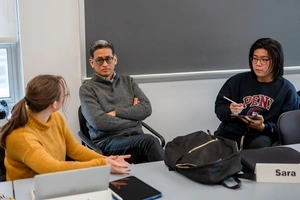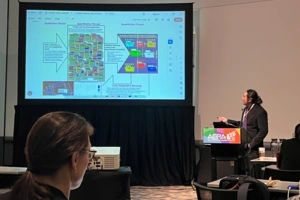Penn GSE recently hosted Joel Vargas, vice president at Jobs for the Future (JFF), for its Global Possibility Network Speaker Series. Vargas’s talk centered on bridging the gap between education and the workforce, providing perspective on creating seamless pathways for students transitioning from high school to higher education and beyond.
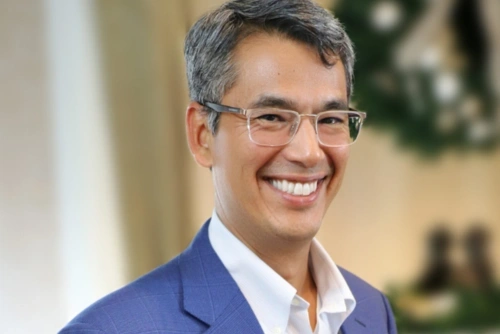
Vargas leads JFF’s Education practice and focuses on improving learning systems and outcomes. His expertise encompasses designing and implementing research, systems changes, and state policy agendas for integrating high school, college, and career. Vargas also creates policy frameworks, tools, and model legislation, and provides technical assistance to state task forces and policy working groups.
At the event, he introduced his concept of the “Big Blur,” a model that integrates the final years of high school with early college experiences and workforce preparation. This approach aims to address the developmental needs of young adults while also meeting the evolving demands of the labor market.
The traditional educational pathway often leaves students underprepared for higher education and the workforce, Vargas explained. By incorporating work-based learning experiences into the curriculum, students can earn valuable credentials and gain real-world experience concurrently with their high school and college education. This method equips students for economic mobility and long-term career success.
Vargas underscored the critical role of policy and systemic reform in implementing this model. He highlighted successful initiatives across various states that align educational goals with workforce needs. His emphasis on policies that are inclusive and equitable resonated with attendees, stressing the importance of ensuring opportunities for advancement are accessible to all students, regardless of their background.
The talk sparked engaging discussions on adapting these models to diverse communities and the necessity for cultural competency in designing education-workforce pathways. A Q&A session allowed Penn GSE community members to delve into the implications of Vargas's work for future educators, policymakers, and students.
Media Inquiries
Penn GSE Communications is here to help reporters connect with the education experts they need.
